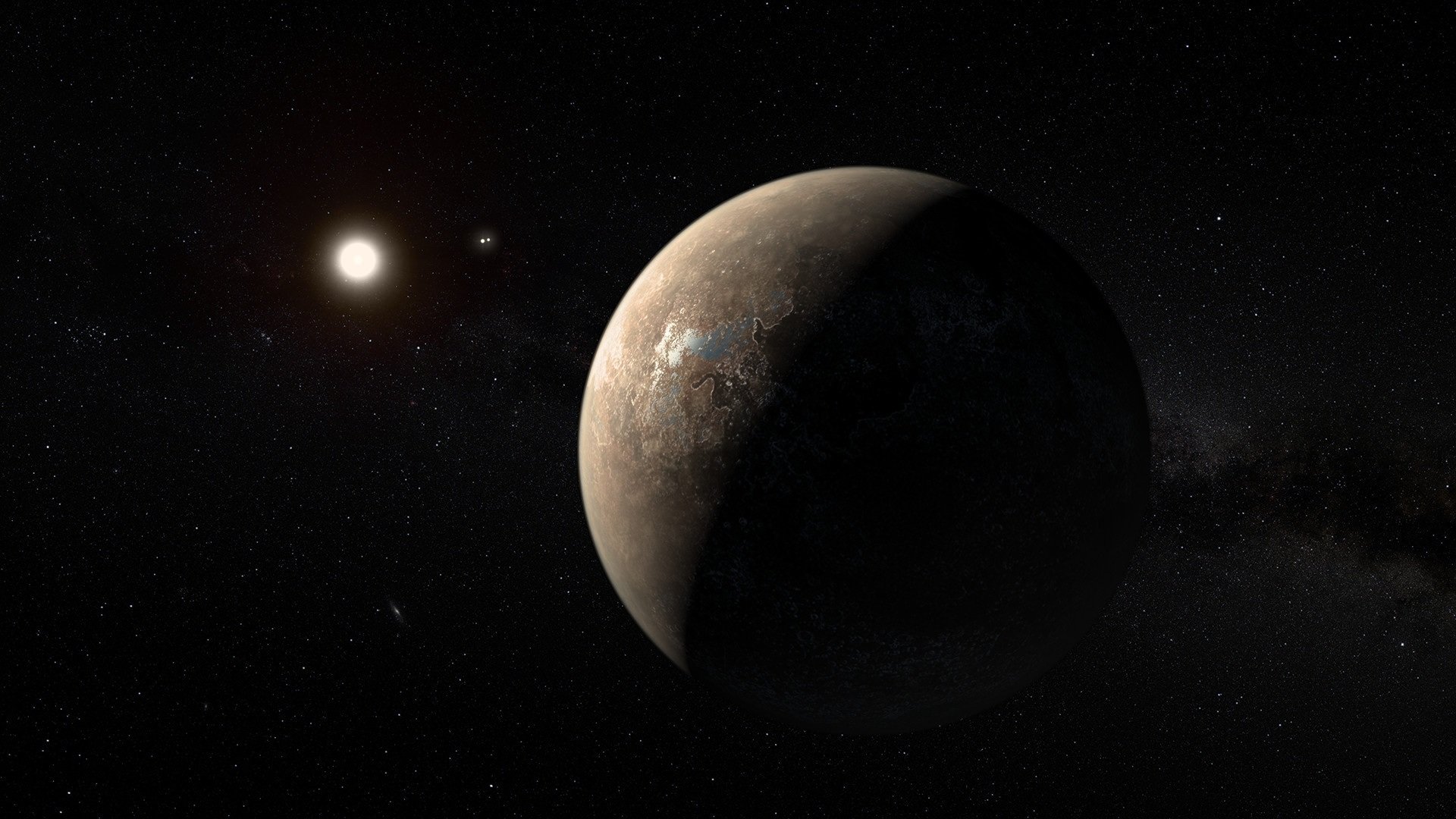As a recovering science fiction author, I ought to be ecstatic about the discovery of an “earth-type” planet orbiting Proxima Centauri, our nearest neighbour just four light-years away.
And I am. Even after the hundreds of “exoplanets” discovered around other stars in the past 20 years, it’s a remarkable achievement to spot one so small, even if it’s relatively close.
But the general media response to all such discoveries has really put me off. The implicit attitude is “Goody! Let’s pack our bags and go.”
In fact, a project called Breakthrough Starshot is already under way to launch a fleet of tiny “ships” with sails the size of postage stamps; a huge earth-based laser would drive the fleet to Proxima Centauri at 20 per cent of the speed of light, so it could reach the star in 20 to 25 years.
Well, Stephen Hawking has lent his credibility to the project, which (if it’s ever built) would start beaming back information about the Proxima system as it sailed through it. We’d get that information in another four years, which would thrill our grandchildren sometime well after 2050.
But people getting to Proxima b? Forget about it. Movies like Star Trek ignore the technology that puts its characters on new worlds. For a good reason: given what we know about physics, you can’t get there from here.
Come to think of it, you can’t even get into low earth orbit and stay there for a very long time. We are apes evolved to thrive on the surface of this planet, preferably in the tropics. It’s one thing to move us into cold climates; we can figure out how to keep ourselves warm. It’s quite another to escape gravity altogether.
The minute our bones and muscles don’t feel the pull of gravity, they happily start to atrophy. When astronauts spend months in orbit, they spend much of their time just trying to maintain reasonable muscle strength. Even so, they return to earth facing weeks or months of physiotherapy.
That basic fact makes it highly unlikely that we will ever establish real colonies on the moon or Mars. Longtime lunar residents would suffer disastrous fractures with every stumble. After months in zero gravity reaching Mars, aspiring colonists might not survive the descent to the surface. If they did, they’d still be useless for the real grunt work needed to build and maintain a livable habitat.
Getting beyond Mars only compounds the problem. The New Horizons spacecraft took almost 10 years to reach Pluto, 7.5 billion kilometers away, and it got there that fast only by shooting past the planet and on into space. It cost $700 million. Sending humans that far on a one-way trip would cost exponentially more.
Sending humans to a planet around even a nearby star like Proxima Centauri just isn’t feasible. For starters, Proxima is 4.3 light-years away—that’s 40.4 trillion kilometres. If New Horizons had been aimed at Proxima b, it would take 54,400 years to get there.
Some SF writers have tried to get around this by imagining ships huge enough to support many generations; the remote descendants of the original crew would finally arrive. Kim Stanley Robinson, the author of the recent novel Aurora, describes the inevitable decay of such ships’ life-support systems—and of their crews’ society.
He also describes a Catch-22 of interstellar colonization: any planet that could support human life would likely support countless micro-organisms that would kill people and their domestic plants and animals—just as our bacteria, in H.G. Wells’s novel War of the Worlds, finished off the invading Martians.
For us, permanent colonies on other planets, whether nearby or far away, are just a fantasy. And it’s a tempting one. Space flight and nuclear weapons have evolved simultaneously, and one argument for space colonies has been to ensure we don’t kill ourselves off in some stupid war. But that’s like polar bears imagining they can survive global warming by migrating overland to Antarctica.
A wiser use of our resources would be to send out robot probes to all neighbourhoods of our own solar system, like the Juno spacecraft now orbiting Jupiter, as well as plenty of postage-stamp interstellar fleets. Then we could sit comfortably at home, in the habitat we’re designed for, while following the probes’ discoveries through video and even virtual reality. (The starships’ data would be a gift to our great-grandchildren.)
With the money we’d save, we could likely provide every human on earth with health, education, and a reasonable standard of living—not to mention a sustainable life-support system for both humans and all the other creatures we share this planet with. ![]()
















Tyee Commenting Guidelines
Comments that violate guidelines risk being deleted, and violations may result in a temporary or permanent user ban. Maintain the spirit of good conversation to stay in the discussion.
*Please note The Tyee is not a forum for spreading misinformation about COVID-19, denying its existence or minimizing its risk to public health.
Do:
Do not: